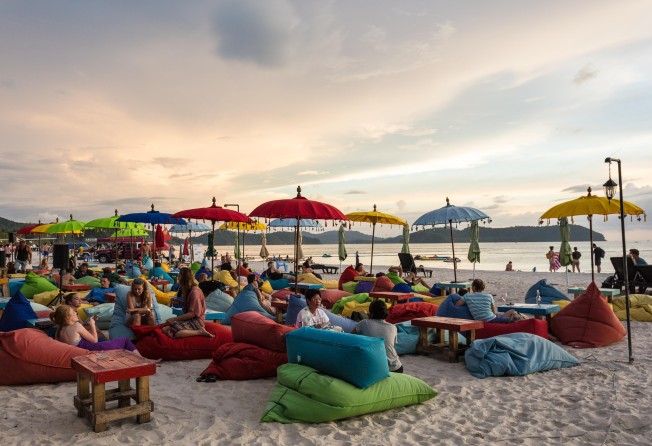Hotels brace for pain of worsening US-China trade war as consumers likely to cut non-essential spending
- Hotel occupancy rates and revenues in the first quarter show the impact on consumer discretionary spending

Hotel occupancy rates and revenues in Asia-Pacific fell in the first quarter as the worsening US-China trade war dented consumer confidence, according to a report by property agency Colliers International.
Revenue per available room, a key measure of hotel performance, dropped 7.2 per cent year on year in the first three months while overall occupancy rates decreased to 67.4 per cent, the report found.
“It is evident that the recent escalation in the trade dispute and the political impasse between the US and China is starting to weigh on business and consumer confidence, thereby tempering demand growth,” said Govinda Singh, executive director for valuation and advisory in Asia at Colliers and the report’s author.
The figures show the impact on consumer discretionary spending of a worsening economic outlook brought about by the increasingly bitter trade war.
“I wouldn’t say [the hotel segment] is the most vulnerable, but it’s certainly on the frontline shall we say of the impact [of the trade war] as [spending on hotels is] discretionary, but there’s going to be a lag effect so if things really go south, then you won’t probably see that filtering through until next year,” Singh said.
Colliers is expecting 3 to 4 per cent growth in revenues for hotels in the region this year, but any further escalation of the trade dispute could see no growth or even a decline of between 2 and 3 per cent.
“When we did that forecast, I factored in the scenario that the trade war will perhaps not be as bad as it is getting,” Singh said.
“But if it gets worse, and certainly it seems likely to get worse before it gets better, then of course that’s going to have a negative impact.”
He added that hotel demand was driven by business and consumer confidence, so any impact on that would feed through to the hotel business as a whole.
The overall performance of Asian hotels was dragged down by the more than 10 per cent declines in cities such as Ho Chi Minh City, Kuala Lumpur and Phuket, Singh said.
Hong Kong, however, was a stand-out, with occupancy rates remaining high at 92 per cent in the quarter, while revenue per room rose 2.7 per cent.
Despite the increasingly bleak outlook, Singh said there were bright spots in Asia-Pacific’s hotel sector, with cities such as Delhi, Manila and Seoul each registering a rise of more than 3 per cent in the period.
Other analysts, however, were more optimistic, pointing to increasing numbers of visitors to the region.
“The number of tourists coming to Asia-Pacific has been up by 6 per cent year on year, according to the United Nations World Tourism Organisation,” said Zhang Jiahao, consultant of CBRE Hotels Asia-Pacific.
“The region continues to drive growth and there is a more positive outlook in the next four months compared to the other regions.”